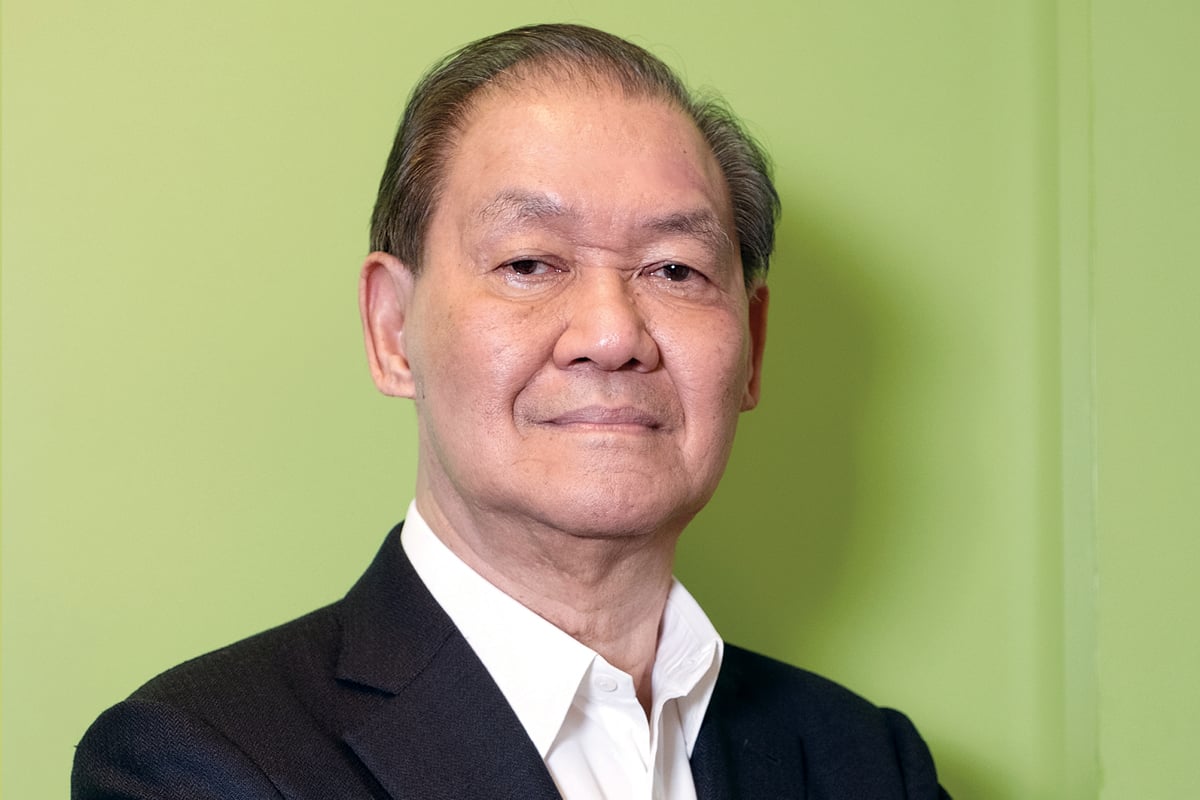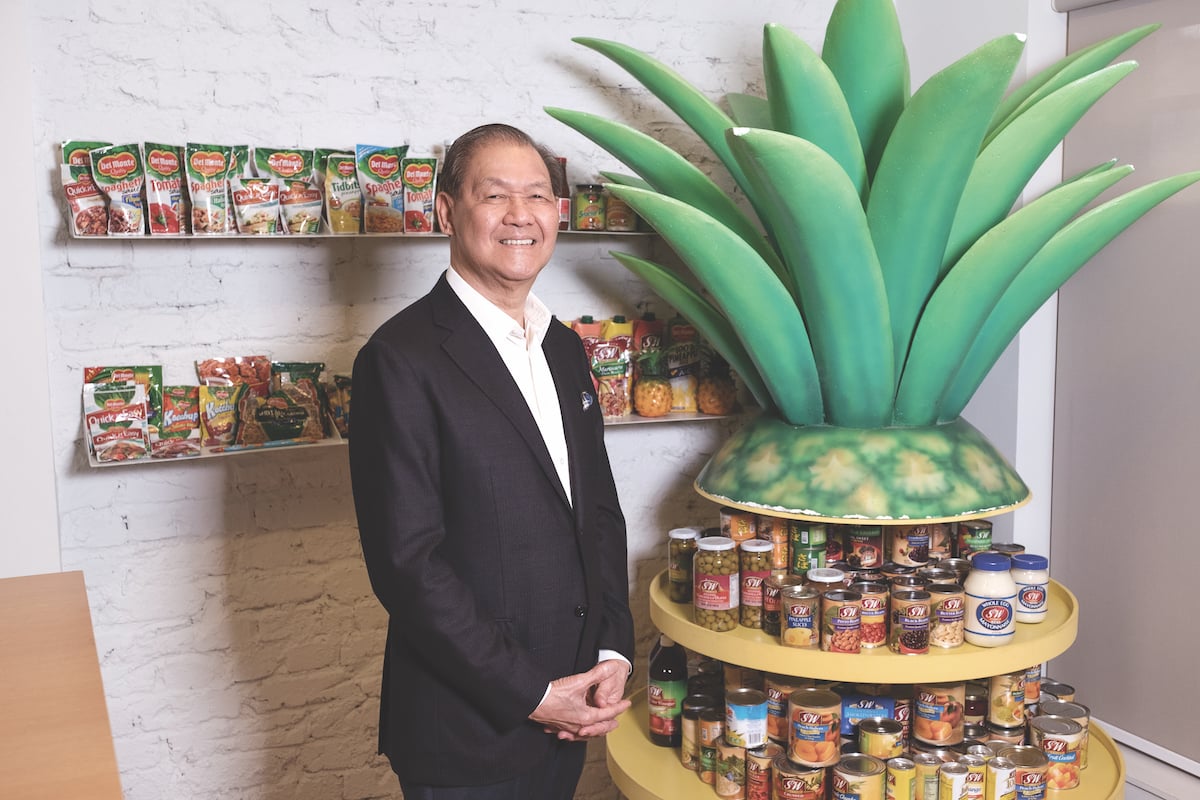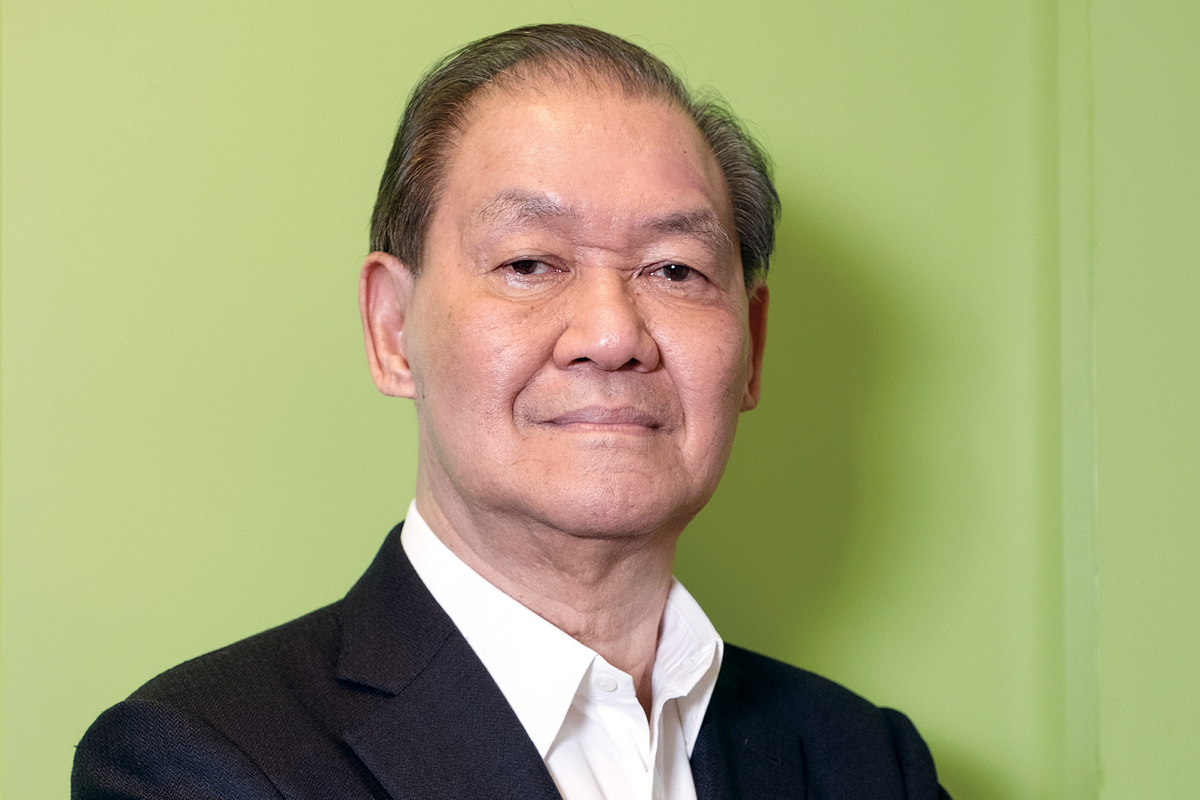Del Monte Pacific Limited (DMPL) Chair Rolando Gapud has a style of leadership that encourages workers to share their ideas with him.
“I’m always ready for an argument in the sense that when I present something to my colleagues, I always encourage them to tell me what they think,” he tells The CEO Magazine. “If they don’t agree then they should tell me why and we can discuss it. I think, in a lot of ways, my colleagues appreciate this because then we have fun in the process.”

DMPL is a Philippines-based food and beverage company with 16 factories and more than 5,000 employees around the world.
“We have a process where we are always on the lookout for talent,” Rolando says.
“While we started with Filipinos, we have grown into a multiracial organisation. We have Malaysian, Indian, Singaporean, Japanese and Chinese people working for us at this point. We have the dimensions of a family operation where people are treated not just as employees but as part of a family.”
It is the people who work for the company that Rolando is most proud of when it comes to the organisation. “I always say these guys work their backs off,” he says.
“It’s not just to get working fees but they work very hard to achieve our goals and our objectives. I see that in a lot of my colleagues and I pray for that because they’re giving effort over and above the call of duty. Our COO spends his New Year’s Eve at the factory because he wants to be with the team delivering the last boxes of processed pineapple. He does it to show that we do care for them even though it’s New Year’s Eve.”
In 2014, DMPL acquired the consumer products brands of US-based Del Monte Foods in a lucrative billion-dollar deal. For Rolando, it was one of his most satisfying achievements at the business to date.
“Del Monte Pacific was only a $US400 million company and Del Monte Foods, the original owner of the Del Monte brand, was, at the time we acquired it, over US$1.6 billion,” he says.
The deal saw DMPL acquire four massive food brands including Del Monte, S&W, Contadina and College Inn – with products ranging from canned fruit and vegetables to pasta and juices.
It was a boon for the company. “It was obviously a tough negotiation and very complicated,” Rolando says. “But in the end, we were fortunate enough to do it. I think, for a Philippines-based company, it was the first time that somebody had acquired first, the original multi-company; and second, a company that was four times its revenue.”
The Del Monte brand originated in the US during the late 1880s, and in 1926 it established operations in the Philippines – what is now DMPL. In the 1920s, pineapple seeds were brought into the Philippines from Hawaii, marking the beginnings of a thriving canned fruit and vegetable business.
Now, DMPL owns 25,000 hectares of contiguous land planted with pineapples and has one of the largest integrated pineapple processing plants in the world. Rolando found his way to Del Monte after holding several positions in finance and real estate.
Some of his roles included Managing Director of Bancom International Holdings and Chair and CEO of the Security Bank and Trust Company (now Security Bank) in Manila, Philippines. “We were the first private investment bank in the Philippines and arguably in some other countries in the ASEAN as well,” he says.
“As an investment banker, I got involved in the operations of our client companies and that’s where I got exposed to many businesses and the principals of the businesses.”
Because of his dealings with several businesses, Rolando wasn’t fazed by the transition to the food and beverage industry. “Consumer goods weren’t foreign to me because I had seen them before through my clients,” he notes.
He further explains why he decided to make the leap to DMPL. “The family that acquired Del Monte Pacific around 10 years ago were close friends of mine and I had previously advised them on business matters,” he says.
“In fact, I was consultant and adviser to Mr Jose Y Campos, the father of the current owner. Jose was one of the more famous industrialists in the Philippines. He founded the company and the family enterprise and I had been consulting with him for more than 30 years.”

When Jose’s son Joselito, affectionately called ‘Butch’, planned to acquire Del Monte Pacific, he asked Rolando to help him with the acquisition. “So I did, and we acquired the company,” Rolando says. “Then one thing led to another and he said, ‘You helped me purchase this company, can you stay for a while as chair and see the transition through?’ I said ‘sure’, and here I am 10 years later.”
When the massive acquisition was complete, Joselito says it drove up the financial side of the business, with 75% of the company’s sales now based in the US. “It opened up the largest consumer market in the world and, of course, it’s where the original brand was based,” he adds.
“Del Monte is a well-regarded brand over there. In addition to that, Del Monte Foods owned the brands for most of the Latin American countries. Through that, we can build a presence in Latin America, which gifts another opportunity to us.”
While DMPL now has a larger sales base, Rolando notes that it still needs to keep up with consumer trends related to canned foods. “You have millennials, for example, not favouring food in cans,” he notes.
“The general perception of canned food is that it’s not very healthy, although our researchers were prepared to stand up and defend the can. It’s about that perception. Millennials in general want to go organic; they want something fresh as opposed to something which is preserved and especially in a can. Because these traditional categories are going down, we have to step up innovation and get new products into the market.”
With DMPL having been in operation for more than 90 years, Rolando attributes its success to having a quality product. “For our fruits and vegetables, we start with the farmers themselves,” he says.
“We are recognised as a quality brand … That is our biggest advantage because we control the whole process from farm to store.”
“We have contracts with big farmers for our fruits and vegetables where we, in effect, have factories that are right beside the places where they are grown. And we grow them fresh. So, in the marketplace, we are recognised as a quality brand, a quality product. That is our biggest advantage because we control the whole process from farm to store.”
Rolando adds that the company’s biggest competition are private labels sold at big retailers such as Walmart and Costco. “We have to compete against them in terms of quality products, there’s no question about that,” he admits.
Del Monte Pacific’s core values are listed in the acronym ‘Choice’.
Championing together
Healthy families
Ownership with integrity
Innovation
Commitment to society and environment
Excellence in everything we do
Where Del Monte Pacific’s products are sold:
Americas-75%
Philippines-15%
Asia (excluding the Philippines)-8%
Europe-7%
Categories of products sold by Del Monte Pacific:
Packaged fruit and vegetables-68%
Culinary-18%
Beverages-7%
Fresh fruit and others-7%



